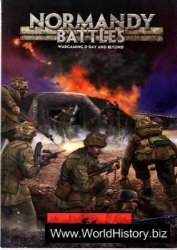Brezhnev also initiated a significant retreat from the policy
of destalinization adopted by Nikita Khrushchev.
Criticism of the “Great Leader” had angered conservatives
both within the party hierarchy and among the public
at large, many of whom still revered Stalin as a hero of
the Soviet system and a defender of the Russian people
against Nazi Germany. Many influential figures in the
Kremlin feared that destalinization could lead to internal
instability and a decline in public trust in the legitimacy
of party leadership—the hallowed “dictatorship of the
proletariat.” Early in Brezhnev’s reign, Stalin’s reputation
began to revive. Although his alleged “shortcomings”
were not totally ignored, he was now described in the
official press as “an outstanding party leader” who had
been primarily responsible for the successes achieved by
the Soviet Union.
The regime also adopted a more restrictive policy toward
free expression and dissidence in Soviet society.
Critics of the Soviet system, such as the physicist Andrei
Sakharov, were harassed and arrested or, like the famous
writer Alexander Solzhenitsyn, forced to leave the country.
There was also a qualified return to the anti-Semitic
policies and attitudes that had marked the Stalin era.
Such indications of renewed repression aroused concern
in the West and were instrumental in the inclusion
of a statement on human rights in the 1975 Helsinki
Agreement, which guaranteed the sanctity of international
frontiers throughout the continent of Europe (see
Chapter 7).
The political stamp of the Brezhnev era was formally
enshrined in a new state constitution, promulgated in
1977. Although the preamble declared that the Soviet
Union was no longer a proletarian dictatorship but rather
a “state of all the people,” comprising workers, farmers,
and “socialist intellectuals,” it confirmed the role of the
Communist Party as “the predominant force” in Soviet
society. Article 49 stated that “persecution for criticism
shall be prohibited,” but Article 62 qualified the rights of
the individual by declaring that citizens “shall be obligated
to safeguard the interests of the Soviet state and to
contribute to the strength of its might and prestige.”
There were, of course, no rival voices to compete with
the party and the government in defining national interests.
The media were controlled by the state and
presented only what the state wanted people to hear.
The two major newspapers, Pravda (Truth) and Izvestiya
(News), were the agents of the party and the government,
respectively. Cynics joked that there was no news in
Pravda and no truth in Izvestiya. Reports of airplane accidents
in the Soviet Union were rarely publicized on the
grounds that doing so would raise questions about the
quality of the Soviet airline industry. The government
made strenuous efforts to prevent the Soviet people from
exposure to harmful foreign ideas, especially modern art,
literature, and contemporary Western rock music. When
the Summer Olympic Games were held in Moscow in
1980, Soviet newspapers advised citizens to keep their
children indoors to protect them from being polluted
with “bourgeois” ideas passed on by foreign visitors.
For citizens of Western democracies, such a political
atmosphere would seem highly oppressive, but for the
people in the Soviet republics, an emphasis on law and
order was an accepted aspect of everyday life inherited
from the tsarist period. Conformism was the rule in virtually
every corner of Soviet society, from the educational
system (characterized at all levels by rote memorization
and political indoctrination) to child rearing (it was forbidden,
for example, to be left-handed) and even to
yearly vacations (most workers took their vacations at
resorts run by their employer, where the daily schedule
of activities was highly regimented). Young Americans
studying in the Soviet Union reported that friends there
were often shocked to hear U.S. citizens criticizing their
own president and to learn that they did not routinely
carry identity cards.




 World History
World History









